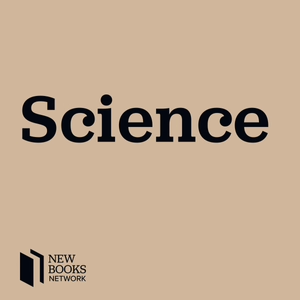
235. Thomas Sowell: The Life and Work of the Legendary Social Theorist (Jason Riley)
12/14/21 • 96 min
1 Listener
Shermer speaks with Jason Riley about Maverick — the first-ever biography of Thomas Sowell, one of the great social theorists of our age. In a career spanning more than a half century, Sowell has written over thirty books, covering topics from economic history and social inequality to political theory, race, and culture. His bold and unsentimental assaults on liberal orthodoxy have endeared him to many readers but have also enraged fellow intellectuals, the civil-rights establishment, and much of the mainstream media. The result has been a lack of acknowledgment of his scholarship among critics who prioritize political correctness.
Shermer and Riley discuss: Riley’s documentary on Sowell; Sowell’s philosophy that “there are no solutions, only trade-offs”; mismatch theory and affirmative action; race and IQ; why Riley thinks liberals make it harder for blacks to succeed; political correctness; BLM, antiracism, reparations; charity and welfare; income inequality and UBI, and much more...
Shermer speaks with Jason Riley about Maverick — the first-ever biography of Thomas Sowell, one of the great social theorists of our age. In a career spanning more than a half century, Sowell has written over thirty books, covering topics from economic history and social inequality to political theory, race, and culture. His bold and unsentimental assaults on liberal orthodoxy have endeared him to many readers but have also enraged fellow intellectuals, the civil-rights establishment, and much of the mainstream media. The result has been a lack of acknowledgment of his scholarship among critics who prioritize political correctness.
Shermer and Riley discuss: Riley’s documentary on Sowell; Sowell’s philosophy that “there are no solutions, only trade-offs”; mismatch theory and affirmative action; race and IQ; why Riley thinks liberals make it harder for blacks to succeed; political correctness; BLM, antiracism, reparations; charity and welfare; income inequality and UBI, and much more...
Previous Episode

234. Matt Ridley on the Search for the Origin of COVID-19
A new virus descended on the human species in 2019 wreaking unprecedented havoc. Finding out where it came from and how it first jumped into people is an urgent priority, but early expectations that this would prove an easy question to answer have been dashed. Nearly two years into the pandemic, the crucial mystery of the origin of SARS-CoV-2 is not only unresolved but has deepened.
In this conversation based on the uniquely insightful book, Viral: The Search for the Origin of COVID-19, Matt Ridley reviews how he and his co-author Alina Chan have tried to get to the bottom of how a virus whose closest relations live in bats in subtropical southern China somehow managed to begin spreading among people more than 1,500 kilometers away in the city of Wuhan. They grapple with the baffling fact that the virus left none of the expected traces that such outbreaks usually create: no infected market animals or wildlife, no chains of early cases in travelers to the city, no smoldering epidemic in a rural area, no rapid adaptation of the virus to its new host — human beings.
To try to solve this pressing mystery, Ridley delves deep into the events of 2019 leading up to 2021, the details of what went on in animal markets and virology laboratories, the records and data hidden from sight within archived Chinese theses and websites, and the clues that can be coaxed from the very text of the virus’s own genetic code.
Next Episode

236. Fernanda Pirie on The Rule of Laws: A 4,000-Year Quest to Order the World
Rulers throughout history have used laws to impose order. But laws were not simply instruments of power and social control. They also offered ordinary people a way to express their diverse visions for a better world. The variety of the world’s laws has long been almost as great as the variety of its societies.
In this conversation, Shermer speaks with Oxford professor of the anthropology of law, Fernanda Pirie, who traces the rise and fall of the sophisticated legal systems underpinning ancient empires and religious traditions, showing how common people — tribal assemblies, merchants, farmers — called on laws to define their communities, regulate trade, and build civilizations. What truly unites human beings, Pirie argues, is our very faith that laws can produce justice, combat oppression, and create order from chaos.
If you like this episode you’ll love
Episode Comments
Generate a badge
Get a badge for your website that links back to this episode
<a href="https://goodpods.com/podcasts/the-michael-shermer-show-74023/235-thomas-sowell-the-life-and-work-of-the-legendary-social-theorist-j-18012398"> <img src="https://storage.googleapis.com/goodpods-images-bucket/badges/generic-badge-1.svg" alt="listen to 235. thomas sowell: the life and work of the legendary social theorist (jason riley) on goodpods" style="width: 225px" /> </a>
Copy




